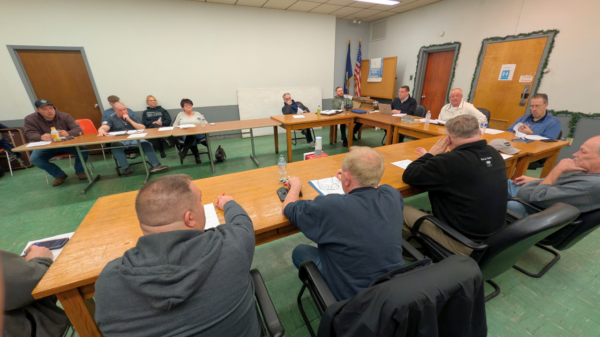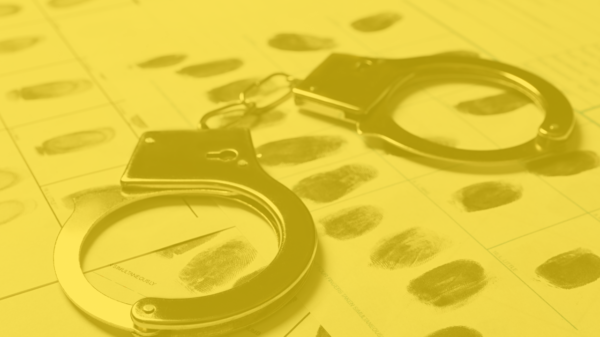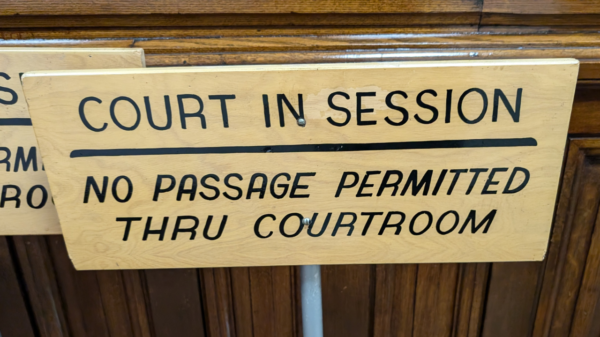A pair of Schuylkill County residents allegedly had their identities stolen recently. The perpetrators then used that stolen personal information to rack up thousands of dollars in PayPal charges, including a nearly $4,000 drone.
Schuylkill County Residents Fall Victim to PayPal Identity Theft
According to State Police at Schuylkill Haven, these alleged crimes happened between March 23 and April 2.
In the one case, a 46-year-old North Manheim Township man says someone got his personal information and used it to open a PayPal credit account.
Once that account was opened, the suspected thief used the line of PayPal credit to purchase a flying drone valued at $3,930.
Starting the same day, and identity thief swiped the personal data on a 42-year-old Cressona woman.
That information was also used to open a PayPal credit account.
No specific items are noted in a police report but the suspected thief tallied charges equaling $1,685.
PayPal, police say, didn’t provide locations of these purchases because they say they were all made on ecommerce shops like ebay.
PayPal Identity Theft

Identity theft is one of the the fastest growing crimes in the U.S. right now.
Here are some quick statistics on identity theft in the U.S.:
- In 2017, nearly 7% of American consumers fell victim to identity theft
- One in 15 Americans fall victim to identity theft each year
- 1 in 3 American adults have been victimized by identity theft
- 1 in 5 people who’ve been victimized by identity theft have their IDs stolen more than once
PayPal, an online bank and popular payment method for online shoppers, is often used by identity thieves. As we see in these cases involving Schuylkill County residents, it’s difficult to track down the thieves.
So, PayPal offers advice to its users on how to prevent identity theft and highlights the ways identities are most often stolen.
Dumpster Diving
Shred all documents containing your personal information. When you toss documents or bills or bank statements in the trash, you don’t know who’s going to see it or where your trash is going. So, it’s best to give dumpster divers little to no chance of getting your personal information. Shred those documents!
Phishing or Other Forms of Hacking
Phishing is often pulled off by directing you to a website that looks like one you’d normally use. They’ll ask for your personal information but if you’re not careful, you could be putting that information into a phishing site that’s only being used to steal your identity.
To prevent being a victim of phishing, don’t open emails from senders you don’t recognize. Look for obvious signs of a fake website. Odd language and misspellings are key giveaways. Another thing to look for is the lock in your address bar of your internet browser. That lock means you’re on an encrypted, secure site and those are less likely to be phishing sites. A site without a lock isn’t necessarily a fake but it’s not one where you should go entering ANY of your personal data.
Stealing Your Mail
Don’t leave mail sitting in the mailbox for too long. Just like porch pirates are known to swipe packages from your front door, they’ll also take your mail. If they get their hands on a credit card or bank statement, you’re screwed.
Overhearing You Share Personal Information
Surely, everyone has given out personal information on the phone. Even if you’re in your own home and sharing your credit or debit card number with a merchant, someone could be listening outside.
Also, when you’re at an ATM, be sure to cover your PIN code as you punch it into the machine.
Another tip is to keep your credit or debit cards concealed when you’re at a store. A would-be thief behind you in line may look like they’re just checking their phone but if they see you flashing your payment cards, it only takes a couple taps of their screen to get a snapshot of your card numbers.
Change Your Passwords, Use Strong Passwords
Too many people use passwords like “password” or “abc123” to secure online accounts. Simple rule on that: Don’t.
Avoid using pets’ names, maiden names, your car make or model, favorite sports teams, or anything that could easily be linked to you.
Invest in Anti-virus Software and Identity Theft Protection Services
It may seem like a bigger investment off the top, but the cost of something like Norton to protect your online devices isn’t a bad idea. You can even get these services on a subscription basis to lower the up-front costs.
Either way, the cost of a service like this plus an identity theft service like LifeLock will seem like peanuts if you get hacked like the two locals mentioned earlier.
Log Out
Don’t leave sites like PayPal or your bank account website open with your account active, especially if you’re in a public place. Even your work computer is a bad place to conduct business or make purchases. When you’re finished doing what you have to do on these types of sites, log out completely. And that means more than just X’ing out of a browser tab or locking your phone.
Take the extra few seconds and log out of those sites.
For more, check out:
- Schuylkill County Police Activity
- Pottsville Man Tries to Steal Cheap Bottle of Wine from Supermarket
- One Senior Thumps Another With His Walking Cane
- Charges Filed Against Man Who Fired Gun at Peach Mountain Home Outside Pottsville
Subscribe to Coal Region Canary
Get email updates from Coal Region Canary by becoming a subscriber today. Just enter your email address below to get started!Support Coal Region Canary
Like our reporting and want to support truly local news in Schuylkill County? Your small donations help. For as little as $5, your contribution will allow us to cover more news that directly affects you. Consider donating today by hitting the big yellow button below ...































